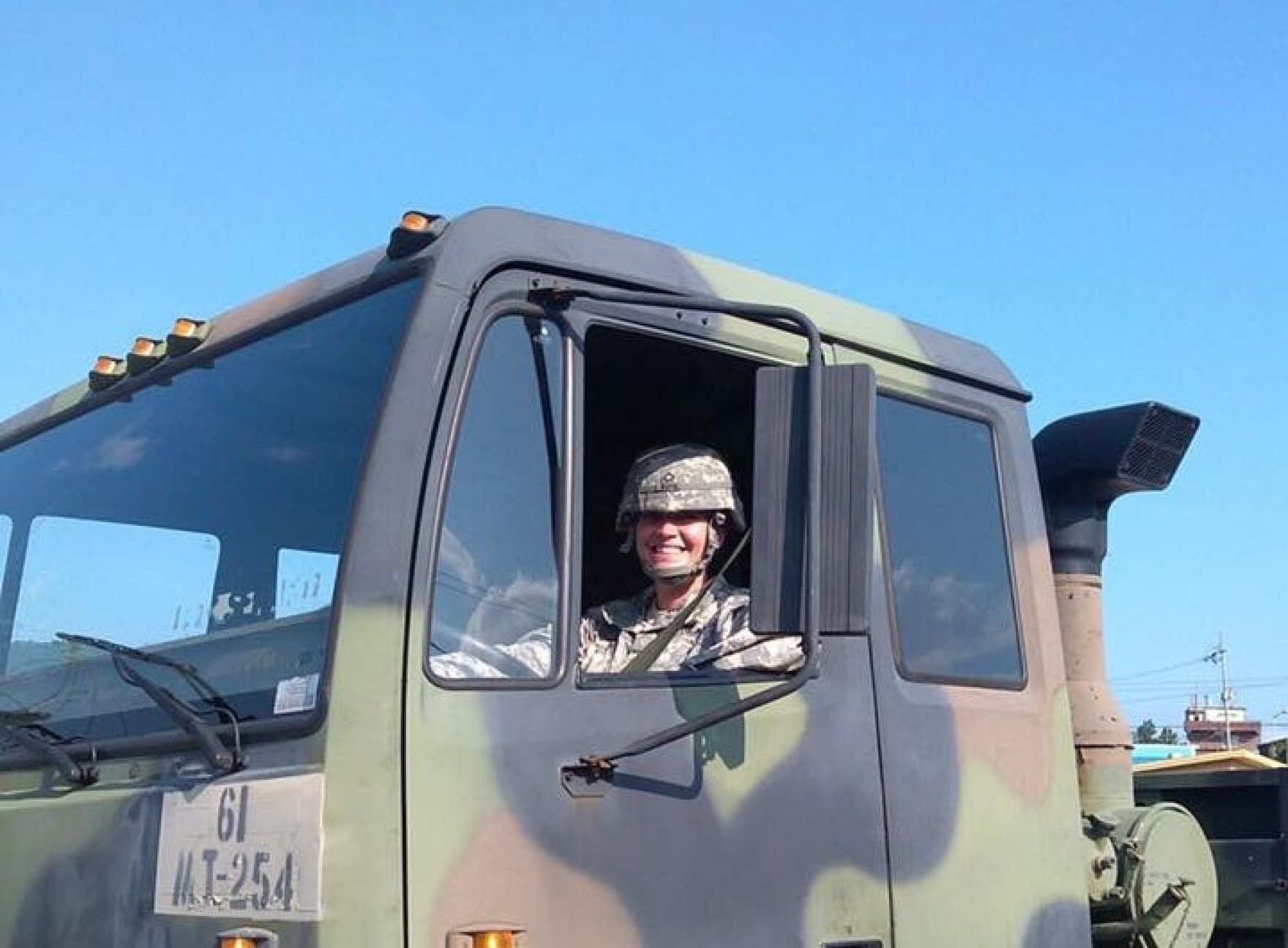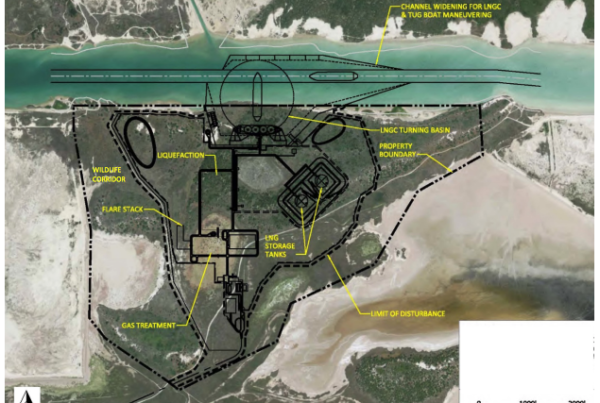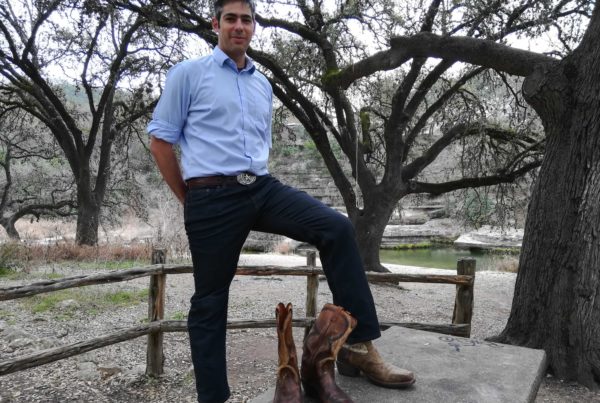Editor’s note: This story includes details of a sexual assault that some readers might find disturbing.
When Amber Davila joined the Army in 2011, she planned to stay in for “the full 20” — or until retirement. The San Antonio native, then 26 years old, took pride in her communications security job. It made her feel like part of a team and a greater good.
“I used to joke that I was gonna eventually become the first female Command Sergeant Major of the Army,” she said. “The goal was to shoot for the stars and hopefully end up on the moon.”
That all changed when Davila was sexually assaulted by a fellow soldier in Korea in 2012. During a night out with members of her squad, Davila became intoxicated and disoriented. A noncommissioned officer in her platoon threw her over his shoulder, telling onlookers that he would get her safely back to the barracks.
“He took me back to his room, where he then assaulted me. I was raped,” she said. “I kind of came to and tried to stop it, but I was unsuccessful.”
In the weeks that followed, Davila privately sought medical help and tried to reckon with the emotional fallout from the attack. But her assailant remained close by and would grope her during formation or sit menacingly on her desk as she worked.
Even though Davila was terrified of being ostracized, she eventually reported her attacker, who was formally punished for aggravated sexual assault and administratively discharged after a lengthy investigation. However, to Davila’s dismay, he was able to keep his rank and remained eligible for benefits through the Department of Veterans Affairs.
But the ordeal still wasn’t over.
“You think you’re OK,” Davila explained, “Then the commander says, ‘Horseshoe on me,’ so everybody kind of moves in. Suddenly someone’s brushing against me and I’m right back in that formation in Korea, where this man is torturing me. It just became overwhelming.”
She spiraled into anxiety and destructive behavior, and spent more and more energy trying to appear fine. When it came time to reenlist, she had a panic attack.
“That’s when I decided I couldn’t do it anymore — that I needed to get out,” she said.
Davila isn’t alone in that decision. According to a new study by the RAND Corporation, sexual assault doubled the odds that a service member would leave the military within 28 months. And about a quarter of troops who were sexually harassed didn’t re-up.
“Sexual assault and sexual harassment are associated with a wide range of harms to individual service members, but this study highlights another negative impact of these crimes — higher rates of attrition and associated harms to force readiness,” said Andrew Morral, senior behavioral scientist at RAND and lead author of the report.
Using Defense Department data, he tracked the careers of a group of service members who reported sexual assault or harassment in 2014. Then he used statistical analysis to figure out how their experiences translated to the entire force.
Assaults were associated with about 2,000 more people leaving the military than would normally be expected. Sexual harassment contributed to the departure of an additional 8,000 servicemembers.
The researchers found that separations from the military following sexual assault or sexual harassment were mostly voluntary, meaning the service member opted not to reenlist of their own volition. Because military pay is weighted toward retirement and deferred benefits, many who left early sacrificed considerable compensation.
“They may not have felt like they had much choice if it was a very toxic work environment, but they weren’t kicked out,” said Morral.
Shifting The Focus
After the killing of Specialist Vanessa Guillen at Fort Hood in central Texas, an independent review found that commanders weren’t paying enough attention to sexual assault and harassment. In some cases, non-commissioned officers didn’t encourage reporting and shamed victims.
Morral said that’s been a problem across the military. But he hopes framing sexual assault and harassment as a retention problem will get their attention.
“I hope that they use it to emphasize the importance of leadership, of promoting a command climate that is not permissive of those sexual assault and harassment behaviors,” he said. “I think it’s been hard to get those messages all the way down into the junior enlisted ranks.”
President Biden recently ordered a 90-day commission to pursue solutions to sexual assault in the military. One of its goals is to figure out how to reorient the culture against sex crimes. Thus far, the commission has finalized its charter and is onboarding members with both military and civilian expertise.

The chair of the Pentagon’s new sexual assault independent review committee, Lynn Rosenthal, briefs the media, the Pentagon, Washington, D.C., Feb. 26, 2021. DoD photo by Lisa Ferdinando
Lynn Rosenthal, a longtime advocate for survivors of gender violence, heads the commission. She told reporters in February that she’ll organize listening sessions with service members — especially survivors.
“This Commission says to that service member, ‘You do belong in this military. You belong.’ And it’s our job to make this climate safe for you to be here.”
The commission is slated to give recommendations to Defense Secretary Lloyd Austin this summer. Austin has also mandated that military installations with a high sexual assault risk have their command climates evaluated.
That’s too late for former service members like Amber Davila. Since leaving the military in 2015, she’s started work for the Pink Berets, a women veterans organization San Antonio. It supports survivors of military sexual trauma and advocates for policy change.
But she feels a lingering grief about her service, especially when talking with friends whose Army careers have taken off.
“That could be me, too,” Davila said. “I miss the Army. I miss the potential of what my career could have been.”
This story was produced by the American Homefront Project, a public media collaboration that reports on American military life and veterans. Funding comes from the Corporation for Public Broadcasting.















